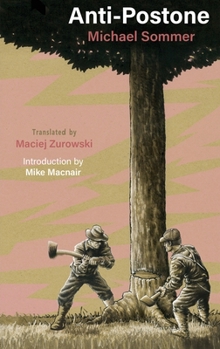Anti-Postone: or, Why Moishe Postone's Antisemitism Theory is Wrong, but Effective
Select Format
Select Condition 
Book Overview
Around the turn of the century, anti-fascism in Germany underwent a transformation. Instead of denouncing the prevailing social order as the natural breeding ground of fascist movements, the focus of the critique shifted onto regressive, unenlightened, or "abridged" forms of anti-capitalism. Asserting that capitalism is "abstract rule," it set out to accuse its various adversaries of easily sliding into antisemitism, construed by anti-fascists...
Format:Paperback
Language:English
ISBN:195327305X
ISBN13:9781953273055
Release Date:January 2022
Publisher:Cosmonaut Press
Length:124 Pages
Weight:0.25 lbs.
Dimensions:0.3" x 4.7" x 7.5"
Customer Reviews
0 rating





